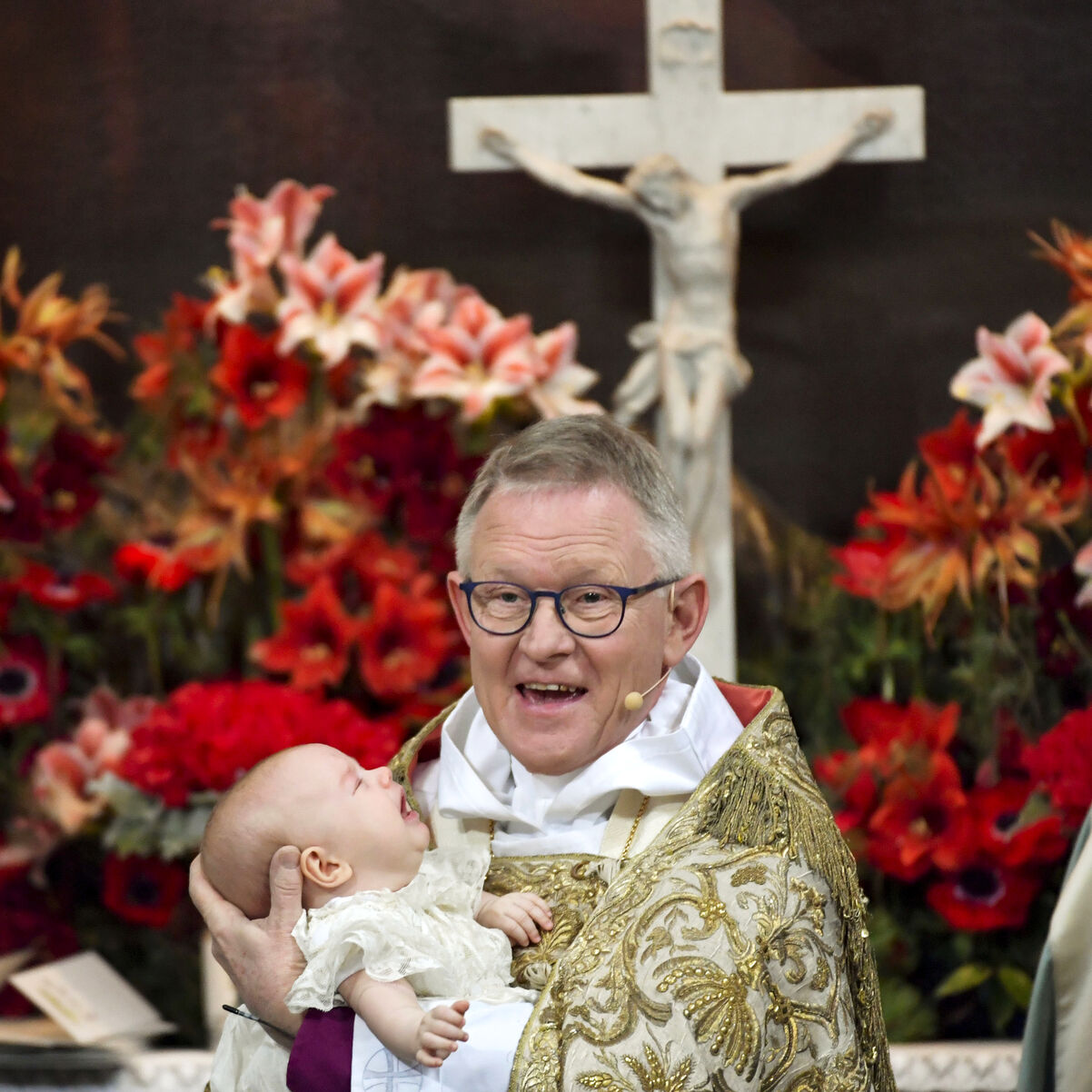The Church of Sweden is distancing itself from reports it ordered clergy members to stop referring to God as either “he” or “him.”
News outlets around the world have alleged the Evangelical Lutheran entity would be banning male pronouns in its services in favor of gender-neutral terminology. But in a Friday phone interview with INTO, the Uppsala-based church claims those reports have been misinterpreted by foreign press.
“That’s fake news that has been circulated abroad,” says Martin Larsson, a press secretary for the Church of Sweden.
In November, the church adopted a new book of worship. Larsson says the update gave pastors “more options” when referring to the Christian deity than previous texts. The opening of Sunday service commonly begins with the phrase “the father, the son, and the holy spirit,” but clergy members now have the choice of saying “in the name of the triune god” instead.
Another example is calling the higher power “God” instead of “The Lord.”
But Larsson cautions about projecting contemporary discussions about gender identity into the changes. Although the word “lord” might have a strongly masculine connotation in the U.S. and the U.K., he claims the Swedish equivalent (“herren”) is “very connected to the church” and has a “slightly archaic touch to it.”
“It’s not a word used by everyday man to express [his] personal belief in or relationship with God,” he clarifies in an email to INTO.
Many more radical changes in how the Church of Sweden genders the divine were actually rejected during the November meeting of its guiding body. There’s a passage in church liturgy which Larsson says is traditionally sung: “You are to us a father, a father.” Some members of the church body wanted to change it to “a father and a mother” instead. He claims the proposal was voted down.
When INTO asked how the news was so widely mischaracterized, Larsson couldn’t provide an easy answer. He traced the report to a Danish newspaper who told him they picked the story up from a Christian publication in the country. But nothing in that version of the story attested to claims of a ban on masculine pronouns.
“We have two Danish newspapers referring to each other,” Larsson says in a slightly teasing tone.
The spokesman, unprompted by INTO, repeatedly singled out a particular story on the changes from PBS Newshour, the hour-long program aired on the Public Broadcasting System. In a Dec. 26 broadcast, correspondent Hari Sreenivasan alleges the church “recently decided its clergy should stop describing God in masculine terms, such as he, and instead use more gender-neutral language.”
The report quotes several officials with the church, including Lund Cathedral Chaplain Lena Sjostrand and Uppsala Archbishop Antje Jackelen. Sjostrand told PBS that she doesn’t think “God is a big mother or a father sitting up in the sky.”
But Larsson wasn’t pleased with the presentation, to say the least.
“He misleads the viewers by saying that Sweden has forbidden pastors and clergy not to use masculine terms,” Larsson claims. “That is totally wrong. Masculine terms still dominate in the Church of Sweden. The pronouns ‘he’ and ‘him’ are [used very frequently]. They are not in any way being washed away.”
“That story in PBS might be easily misunderstood by viewers who don’t have the whole picture,” he adds.
The Church of Sweden does not deny that updates to the book of worship were intended to be more gender-inclusive, attributing the push for inclusion to the “strong” feminist movement in Sweden over the past three decades. But Larsson says the changes were designed to encompass a range of perspectives during changing times, including children and LGBTQ people.
What readers won’t find in the book of worship, however, are gender-neutral pronouns. Although a church in the town of Västerås used the pronoun “hen” to refer to Jesus in advertising for its Christmas services, it is not mentioned in the official handbook.
The pronoun, frequently used by nonbinary and transgender people, was added to Sweden’s official dictionary in 2015.
When INTO asked Larsson if the new worship books described God using female pronouns, he responded that he wasn’t sure at the moment. “I haven’t quite gotten the thick book,” he claims. “I won’t swear that there are no female pronouns.”
But the spokesperson didn’t deny that the changes reflect a continuously evolving theories of a greater power.
“God can be said to include both male and female perspectives,” Larsson says of the church’s theology. “When we say God, we refer to something beyond gender. That perhaps is something more striking outside Sweden than it is in Sweden.”
The changes are set to go into effect on May 20.
Don't forget to share:
Help make sure LGBTQ+ stories are being told...
We can't rely on mainstream media to tell our stories. That's why we don't lock our articles behind a paywall. Will you support our mission with a contribution today?
Cancel anytime · Proudly LGBTQ+ owned and operated
Read More in Impact
The Latest on INTO
Subscribe to get a twice-weekly dose of queer news, updates, and insights from the INTO team.
in Your Inbox













